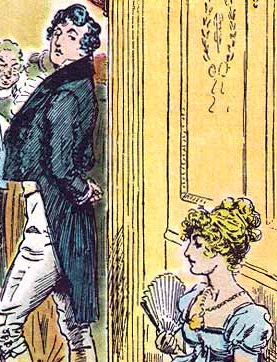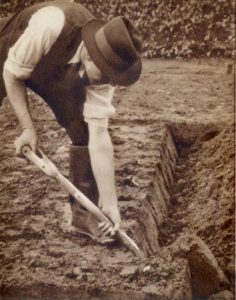 |
| We brighten the front of the house with two troughs of red geraniums |
I have previously given a tip about taking photos on a mobile:
always clean the lens. Simple – but obvious, once you think about it. The
fingerprint sensor is probably next to the camera – smudges!
When I changed my mobile last – just before Christmas – I spent
some time looking at the cheaper end of the market. In the end, I went for a
pretty straightforward Nokia. I like to take sharp photographs, so I was
looking for a mobile phone with a good camera lens – preferably, Zeiss. To Codger,
one good lens makes more sense than four middling lenses. Overall, for the modest
outlay, I have been very pleased. Take a look at the bee on the rose
 |
| The rendering of this shade of red is not quite correct |
I’ve only one quibble – and this might apply generally – some shades
of red do not render accurately. It is as though the sensor saturates – that may
even be the technical expression. So, the colour of the geraniums (top left) and the roses (immediate left) are not well reproduced. The actual colour in both cases is rather deeper and certainly much less
gaudy. I wonder if other users have found the same?
Another tip. My camera software has a setting called Live Bokeh.
This has the effect of blurring the background whilst keeping the subject in
focus. I guess it is a common feature these days. Not always, but quite often,
this will give you better flower shots. You have to give it a moment to settle.
On my camera settings, it comes up with the message ‘depth success’ so I know I
the software has scratched its head and is ready to take the shot. If I am
unsure, I take two shots – one with Bokeh and one without – and select the better of the two
 |
| Bush tomatoes planted in troughs with supports |
Tomato update
This, really, is the last call. We have a few tomato plants left
and would be pleased to see them go to a good home. As a reminder we have Money
Maker, Super Sweet and Cerise. If you are a beginner, you should find Cerise to
be the best choice on the Codger B4B scale. (B4B = Bangs for Bucks – see the
previous post)
Time to tie in
If you are growing a bush tomato like Cerise, the one we have been
supplying, check to see if it needs to be tied in. If it was one of the first
batch you will almost certainly need to act quickly. Simply tie the growth back
– loosely – so it does not flop around. You should have some support for it as shown
in the photo. As you see I have a line of them against the conservatory wall where
it is warm. I have a bit of trial going on, testing various bush varieties –
that explains the number of them
The potting compost trials
 |
| Three different potting composts tested |
Time to report. Main finding: more research needed (that guarantees
a PhD). Certainly, little evidence that there are huge differences between the
qualities of potting compost. I scored each pot. The professional compost came
out best with the trad peat-based and B&Q standard pretty much equal and
not that far behind. Comments:
- It is harder than you might think to mete out equal treatment –
especially watering
- For various reasons, I used jiffy pots. If I try again, I shall
use more standard plastic pots
- None of the mixes incorporated John Innes – I would adjust another
trial to test J.I. as well
 |
| 72 tiny plug plants (pen for comparison) |
Plug plants again
Last week I mentioned plug plants. I now have a photo for you. The
pen is simply there to give you the scale. I thought it might help readers to
see just how small these plants are in reality
 |
| Plug plants are constantly arriving in a poor state |
The second photo illustrates that many are arriving in poor
condition – largely due to lockdown problems, I imagine. We have no less than
three refund requests running at the moment. The suppliers all apologise about
office delays. They are having trouble replying to the many emails they are
getting. I imagine that many relate to the poor condition of the plants
received. Something is going badly wrong. It actually affects planning in the Codger nursery - with growing, you have constantly to think ahead to get things right
 |
| How would Codger have done as a surgeon? |
Weeding lawns
Now we have had some rain, I suggest adding ‘weed the lawn’ to
your to-do list. Codger actually enjoys weeding the veg patch – but hates
weeding the lawn
But he has the tool for the job (see photo left). I think it was designed by a
surgeon. Great for dealing with the big nuisance – rosette shaped weeds with a
long tap root. These tend to create bare patches in the lawn. Codger avoids
weed killers but confesses to having rather shabby lawns. B4B? Lawns score very badly
If you have water lilies or other aquatic plants, then you may
already know that a bit of annual maintenance is needed. You will invariably find, when you
remove the basket from the water, that much of the soil has disappeared and repotting
is necessary. This aside, water lily rhizomes frequently outgrow their baskets
often bursting them apart. When repotting one thing is vital: do not use normal
potting compost; instead, use soil that has no organic matter. I deploy unimproved
clay from the original ‘soil’ that made up our garden. I deliberately keep a
supply by the back hedge
Another ‘do not’ is do not use an ordinary plant pot – you need an
aquatic basket. Line it with permeable material like sacking, add the clay and,
with the plant in place, top with gravel. This is to help prevent erosion due
to fish poking around the roots. Sounds a lot of work – and, it is. Again, not
good on the B4B scale
 |
| Not exactly Colin Firth |
From Mr Darcy to Mr Holroyd
Strange thing doing a blog. I think it is the very act of writing
that unearths forgotten memories. That piece on Wednesday about swimming out into
the lake to gather a lily blossom. I have not thought of that moment since it
happened, not consciously. It was a solo performance there being no Miss Bennet to receive the bloom from the dripping hand of a young Mr Darcy Smith.
But these were the days before the BBC TV shaped our perceptions of Pride and
Prejudice
 |
| Precision digging was the thing |
More vivid in my memory are my experiences of gardening at school –
almost wholly negative. Having failed the 11+ (thus meeting expectations our teacher–
no-one ever passed at our primary school) I attended a Secondary Modern at
which Gardening was taught as a subject. We were instructed in fierce terms by
Mr Holroyd, a Lancastrian with an accent to suit. I can hear him now, “PO-tassium
prO-mOtes a lush, green growth” with a peculiar emphasis on the repeated vowel –
O. But I suspect my memory is playing tricks as it is ni-trO-gen that promotes a
lush, green growth. Rather, PO-tassium produces a strong and healthy root
system
 |
| At the seed spreading stage |
The lessons were, I suppose, meant to be practical. But, looking
back, I think I now detect a marked reluctance on the part of our guardian to
allow us to go outside. What were three forks and a couple of spades among 30
boys? However, we learned the theory of digging and made copious drawings to
illustrate single digging, double digging and bastard trenching. Did you know
that the depth of the spade is a spit? Such was my introduction to gardening.
None of this theory was I able to practice as we only had a backyard –
absolutely no scope for horticulture there. You can see a Mr Holroyd look-alike
in the photograph above. Such were the 1950s – still in the shadow of a war
that had bankrupted the country
 |
| A familiar sight by railway line |
So, generally, gardening did not figure in my young life. Nor
plants that much - until the later encounter with the water lily. Just one
memory stands out. We used to go up to London from time to time to see a show –
London Palladium and so forth (I was 12 before we had a TV set). My memories of
London are, literally, black and white. Except for one thing: the rose bay
willow herb. In my mind they stand out in vivid colour - in contrast to the gaping
bomb sites in which they proliferated. In dark times you look for a bit of
colour
Fiction and fact
I am told that there was a wartime myth that rose bay
willow herb attracted enemy bombs (it is also known as fireweed). Perhaps that accounts for its unpopularity.
Yet, in other countries such as Russia, it is valued and used to make a herbal
tea for which health benefits are claimed. Exhausted by lockdown? Try making Ivan Chai, as the Russians call it. There are several videos from which to choose. The Cyrillic equivalent of Mr
Darcy with a luxuriant black beard will give you a wonderfully relaxing
explanation here. Ivan Chai is said to ease stress and help one to relax. In fact, as I take another sip, I can hardly stay awake to wish you…
… all the best from your friend, the old Garden Codger
Postscript
The interruptions with supply, mentioned above, mean that we have not been able to make up as many hanging baskets as planned. However, this one is still available and just coming nicely into flower. As usual, if it appeals, just get in touch ...



No comments:
Post a Comment